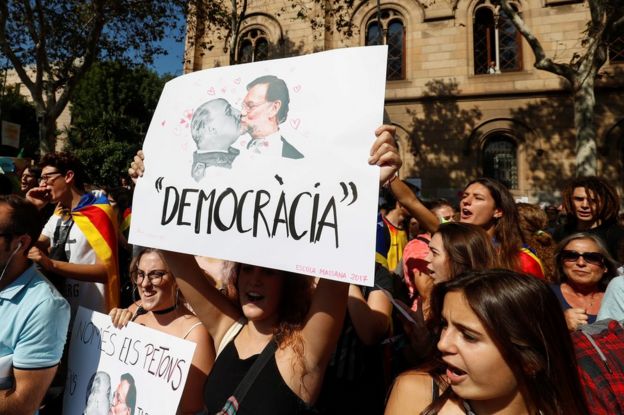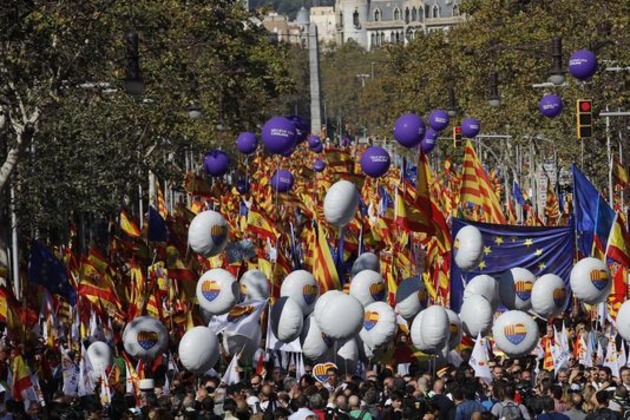iceberg
Diamond Member
- May 15, 2017
- 36,788
- 14,919
- 1,600
Catalonia to move to declare independence from Spain on Monday
in all the arguments going on these days simple things like spain breaking up seems to be getting lost among the dozens of 2nd amendment discussions.
you want to see obstructions to elections, check out what went on there last week.
in all the arguments going on these days simple things like spain breaking up seems to be getting lost among the dozens of 2nd amendment discussions.
you want to see obstructions to elections, check out what went on there last week.






